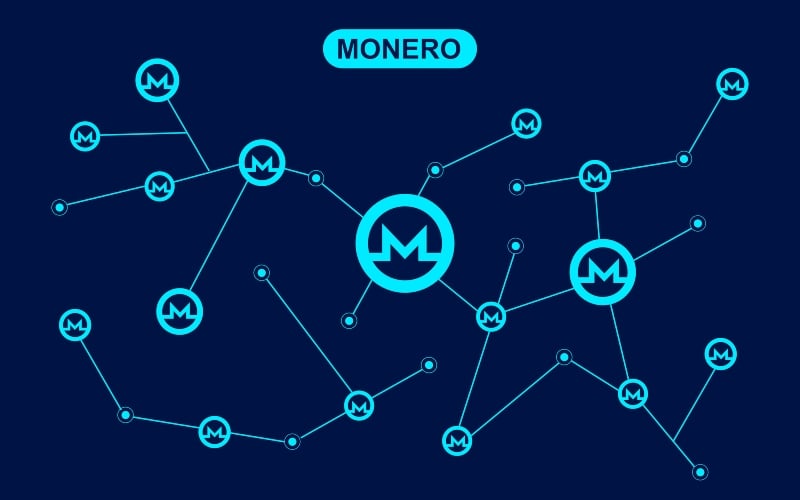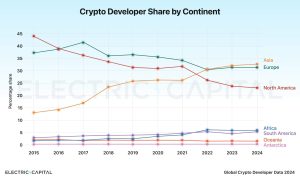
Monero, a privacy coin, is preparing for the hard fork next July, precisely at the height of the 2,688,888 block.
Monero and the hard fork to improve privacy

According to a recent update on Monero’s Github repository, the privacy coin is said to be preparing for its next hard fork at the 2,688,888 block, scheduled for July 2022.
Plans include updating the ring signatures cryptographic method and zero-knowledge proof (ZK), also called Bulletproofs. Basically, the Monero Blockchain, to improve privacy, will update Bulletproof, which will be called “bulletproof+.”
Not only that, again, in this context, Monero also uses stealth addresses and a scheme that obscures IP via Dandelion++ protocol.
July’s hard fork is the fifteenth version of the software, as the blockchain has experienced many updates since the network’s inception in 2014.
The developers aim to deploy the v15 testnet next month and support Trezor and Ledger hardware wallets.
Monero (XMR) and its growth
On Monday, the account that supports Monero posted a roundup of tweets highlighting XMR’s growth in several areas.
2/ Monero saw 154% YoY growth in private-by-default transactions that protect sender, receiver, and amounts, going from ~23k/d to ~40k/d.
Monero users sent over *9 million* transactions last year! pic.twitter.com/gZ6SyiqfCx
— Monero || #xmr (@monero) April 18, 2022
“To celebrate this #Moneroversary, here’s a thread detailing some of the immense growth Monero has seen over the past year! See the full blog post for all the details. Monero saw a 154% growth (year-over-year)in private transactions that protect sender, recipient, and amounts, going from ~23k/d to ~40k/d. Monero users sent over *9 million* transactions last year!”
Among other things, during the past year, Monero reportedly created an additional 237,822.80 XMR for block rewards, while inflation decreased by 34.3% from the previous year.
The post also describes that in 2021, Monero users spent 1,510 XMR in fees, and that is an average of 4.12 XMR per day. The average XMR transaction fee was ~0.00016 XMR, or $0.04196, and was down 48% from the previous year.
In terms of hashrate, Monero also saw a 53% increase over the previous year, and that is a growth from 2.29GH/s to 3.51GH/s throughout 2021. Also new was the introduction of #p2pool, which already averages 5% of the network hashrate.
XMR Mining and Pricing
A couple of months ago, it was revealed that Mine XMR, the largest mining pool for Monero mining, had come close to controlling 50% of the network hashrate. A problem that would lead to the 51% attack that is good to avoid for the sake of the whole network.
Here, in fact, already at that moment, the advice to miners was to diversify to transfer their hash to other Monero pools and thus limit Mine XMR’s control.
The 32nd crypto by market capitalization, XMR remains the historic cryptocurrency dedicated to privacy and, at the time of writing, is worth $256.
That’s a much better price than the last three months, in which XMR has been on an upward trend, rising from $155 at the end of January to over $200 at the end of March, now reaching $256.
The post Monero prepares for next July’s hard fork appeared first on The Cryptonomist.




















